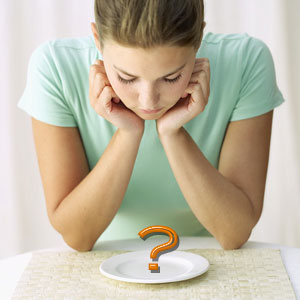How Anxiety Affects Your Eating Habits
Maintaining a healthy relationship with food can be difficult when anxiety gets in the way, but it is also one of the most important things you can do to keep your anxiety at a minimum. While the bad eating habits anxiety can encourage can lead to health problems that intensify the symptoms of anxiety, eating well keeps your body as healthy as possible, which in turn can vastly improve your mental state.
Junk Food as Consolation
If you have ever felt a little happier and more energized after eating food that you know is bad for you, you have experienced the temporary serotonin rush that sugary and/or high calorie foods create in the human body. While in moderation this is fine for you, eating these foods too often has the exact opposite effect, making you feel sluggish, slow and unhappy by depriving your body of nutrients it can use and forcing it to store the unnecessary sugars and calories as fat.
People who suffer from anxiety tend to have naturally low serotonin levels, and the boost these foods temporarily provide can become addictive, leading to more severe anxiety and even depression. In order to avoid this vicious cycle, exercise is extremely important to incorporate into your weekly routine. Getting exercise on a regular basis teaches your body how much and what kinds of foods it needs to be able to function comfortably, and will have you reaching for the nutritious foods your body knows you need, even when your brain has forgotten.
Too Worried to Eat Right
Anxiety can also keep you from reaching from food at all. When you are feeling anxious, every little inconvenience and uncertainty can demand your attention and make you worry more, distracting you from your body’s basic needs, such as the need for sleep or for regular meals. Many people with anxiety also struggle with insomnia, which can impair decision making abilities when it comes to grabbing a snack instead of putting in the mental and physical effort required to pull together an actual meal for yourself. Eating too little can put just as much strain on your body and by extension your mind as binging on junk food, starving your body of the nutrients it needs to operate smoothly.
If you find that you eat less when anxious, you should make an effort to surround yourself with healthy snacks rather than the first bag of potato chips or box of pop tarts that catches your eye. Look for fruits, vegetables and crackers that will keep you eating regularly and make your healthy eating decisions easier to make.
How to Eat to Reduce Anxiety
Eating a balanced diet that includes all the major food groups is the surest way to reduce your anxiety through food. However, foods containing the nutrients below can be particularly useful in stopping anxiety.
- B-12 – Seafood including mussels, crab and mackerel are especially high in B-12, a vitamin credited for its key roles in the brain and nervous system. B-12 deficiency has been linked to fatigue and depression.
- Magnesium – Leafy greens and brown rice provide the body with magnesium, a vital nutrient in the human body that has been made scarcer in the modern world by farming practices that eliminate it from many mass-produced foods. Stress depletes magnesium in the body, preventing it from participating in the chemical reactions throughout your body that keep it working properly.
- Tryptophan – Asparagus and apricots both contain tryptophan, known for promoting serotonin production in the brain and acting as a mood-booster.
Even though bad eating habits can seem easier and feel better in the short term, treating your body right will help you to relieve your anxiety in the long term by keeping your body and brain chemistry in balance.
About the Author: Ryan Rivera knows that eating right is not the only way to reduce anxiety, but eating and anxiety are certainly related. He writes about recovering from anxiety at www.calmclinic.com


Leave a Reply